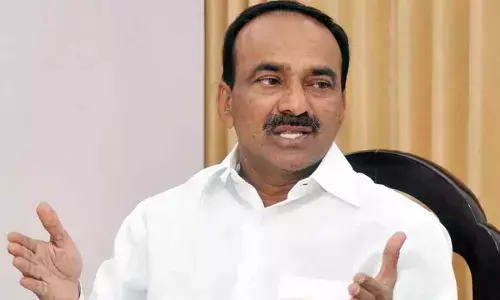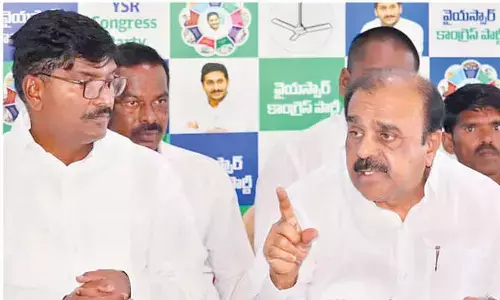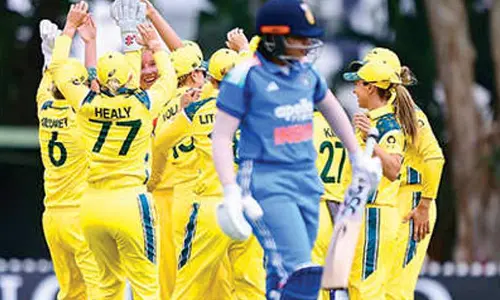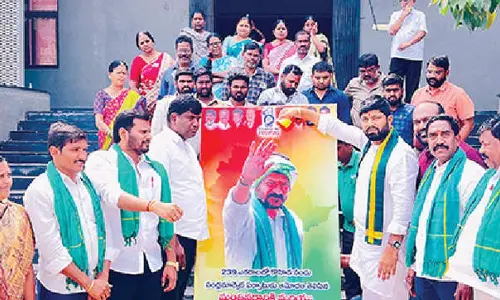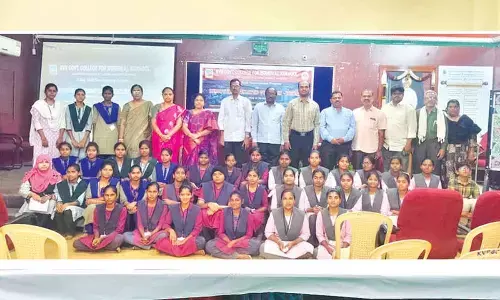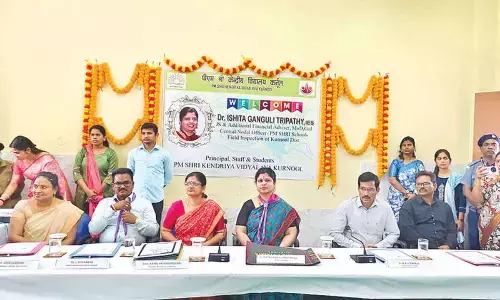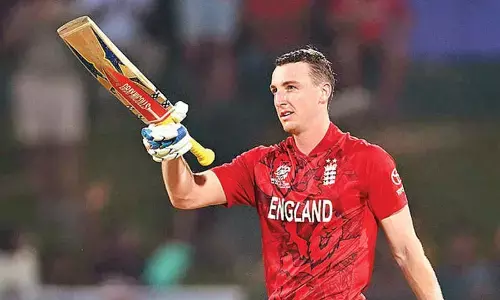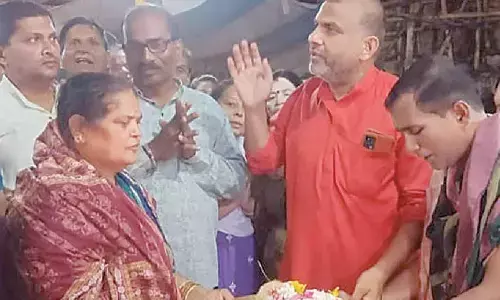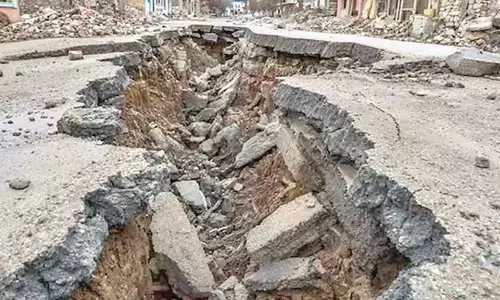Vajpayee’s legacy lives on as country marks his birth centenary
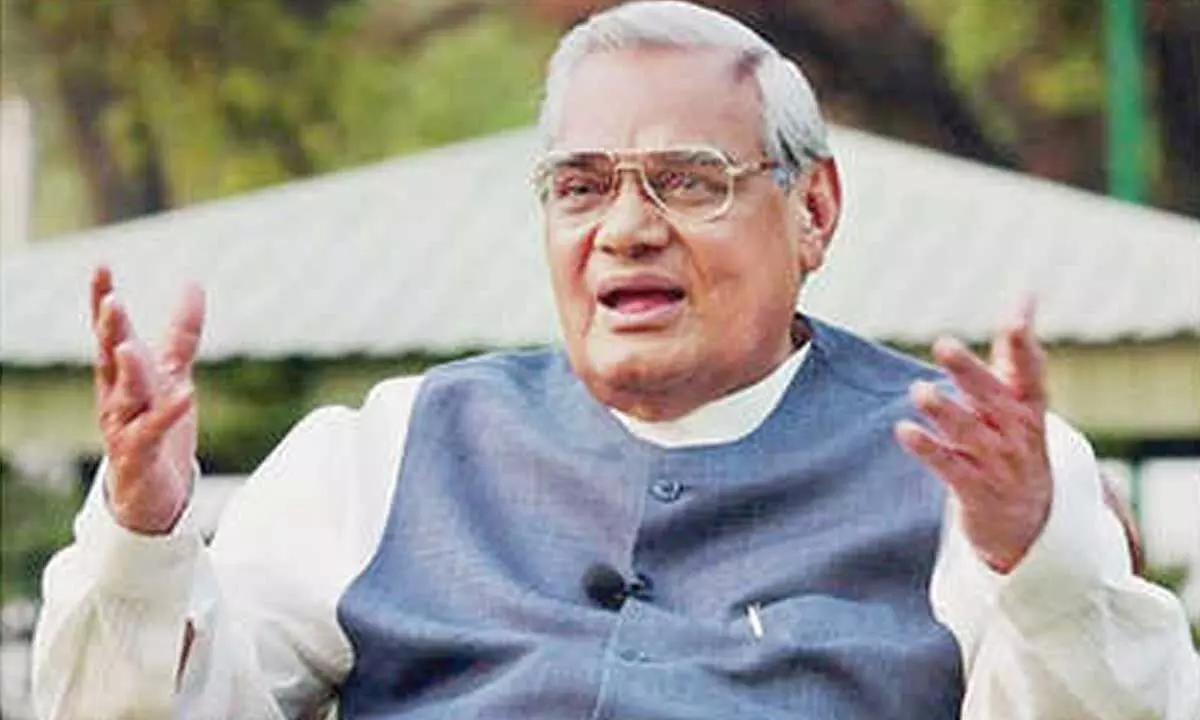
It is ironical that many parliamentarians keep remembering former PM Atal Bihari Vajpayee but they do not follow him!
Delivering one of his more famous speeches at BJP’s inaugural convention at Shivaji Park in Mumbai, Atal Bihari Vajpayee predicted on December 30
New Delhi: Delivering one of his more famous speeches at BJP’s inaugural convention at Shivaji Park in Mumbai, Atal Bihari Vajpayee predicted on December 30, 1980 with his signature flourish: ‘Andhera chhatega, suraj niklega, kamal khilega’ (darkness will end, the Sun will rise, lotus will bloom).
As his birth centenary arrives, his words have aged well, with the BJP returning to power for a third straight term at the Centre and lotus in full bloom.
If Prime Minister Narendra Modi made BJP’s cultural agenda the centre of national politics, Vajpayee helped the party occupy this Centre when its cultural agenda was considered an anathema.
A statesman politician and a peerless orator, India’s first non-Congress prime minister to have served a full-term commanded respect and affection from across the political aisle and stood tall with his innate democratic spirit, honed through decades in opposition, in a politics crowded with powerful satraps. The three-time prime minister was the original builder of coalition politics at the national level, successfully running an alliance government for a full term while navigating some of the biggest national crises, including the plane hijack in 1999 and the terror attack on Parliament in 2001, both with direct links to Pakistan.
His government’s measured handling of the two incidents drew criticism from some quarters, including right wing organisations considered ideologically affiliated to BJP but less than friendly to him for not pushing their cultural and economic agenda, but his standing ensured that he faced no political threat or popular backlash.
And even as he was still smarting from the fall of his government by one vote in the Lok Sabha in April 1999, his firm military and deft diplomatic response to Pakistan’s intrusion into Kargil as the head of a caretaker government earned him plaudits and powered the BJP-led National Democratic Alliance to a more stable majority, ensuring him a full term at the helm.
Ashok Tandon, media adviser to Vajpayee during his six-year stint as PM, said besides being an outstanding parliamentarian who did his bit in “strengthening the roots of parliamentary democracy” after entering the Lok Sabha for the first time in 1957, he brought “good governance” at the centre of agenda as the head of government.
“Good governance was his landmark contribution. He headed a diverse coalition of parties and kept them together, while pursuing policies which helped the country in every field,” he said, citing the launch of Sarva Shiksha Abhiyan, PM Gramin Sadak Yojna and the Golden Quadrilateral highway project under his stewardship.
The Modi government began observing his birth anniversary as “Good Governance Day” and bestowed Bharat Ratna on him in 2015.
An impressive mix of tradition and modernity in his world view, Vajpayee, a full-time RSS worker before being sent by the Hindutva organisation to the Jana Sangh in 1951 when the party was founded, maintained a lifelong adherence to the Sangh’s values even though he at times resented its methods.
With the moderate, poet-at-heart and statesman-like Vajpayee as BJP’s prime ministerial face and the party agreeing to put a moratorium on its contentious ideological planks of the Rem temple construction, Article 370 repeal and the Uniform Civil Code, regional parties from across the country were drawn as he led them to poll wins.
His passionate moves to improve ties with Pakistan resulted in his spectacular journey to Lahore in a bus in February 1999 and then hosting the Agra Summit with Pakistan’s president Pervez Musharraf in 2001 but they met with little success.
As the army chief before he deposed prime minister Nawaz Sharif, Musharraf was behind his country’s misadventure in Kargil, which followed months after Vajpayee’s bus journey.
However, Vajpayee’s famous invocation of ‘Insaniyat, Jamhuriyat, Kashmiriyat’ to resolve the issues afflicting Jammu and Kashmir won him lifelong admirers in the Muslim-majority Valley. Prime Minister Narendra Modi too recalled the phrase in his Independence Day speech in 2018 to reach out to people there.
A mesmerising orator who was keenly informed of Indian traditions and history, Vajpayee was as captivating in speaking on Ramcharitmanas as addressing in Parliament.
Tandon said former Tamil Nadu chief minister and MP CN Annadurai was once caught rushing to Lok Sabha to hear Vajpayee’s speech even though he understood not much of Hindi.
A lifelong bachelor, he was first elected to the Lok Sabha in 1957 from Balrampur in Uttar Pradesh in India’s second general elections. His maiden speech in Parliament so impressed his peers and colleagues that the then Prime Minister Jawaharlal Nehru is said to have introduced Vajpayee to a visiting foreign dignitary thus: “This young man one day will become the country’s prime minister.”
When Vajpayee became India’s foreign minister in the Janata Party government in 1977, he expressed his disapproval of the removal of Nehru’s portrait from South Block and got it restored, an evidence of bipartisanship. As a minister he made an impressive and first Hindi speech in the United Nations General Assembly.
Well-versed in English, his oratory was at its best in Hindi. With his well-timed wit and carefully chosen words delivered with trademark long pauses, his words resonated with all those who came in contact with him — the common man, politicians, bureaucrats, students and world leaders.
Vajpayee was born on December 25, 1924, in Gwalior, Madhya Pradesh to a schoolteacher, Krishna Bihari Vajpayee, and Krishna Devi. After schooling, he graduated from Victoria College in Gwalior, now known as Laxmi Bai College. He did his MA in political science from DAV College in Kanpur. Following a brief flirtation with Communism, he became a full-time worker of RSS in 1947.
A man of consensus and dialogue, he was firmly opposed to MPs resorting to unparliamentary tactics like storming the Well to disrupt Parliament. Tandon says it is ironical that parliamentarians keep remembering him but do not follow him.


